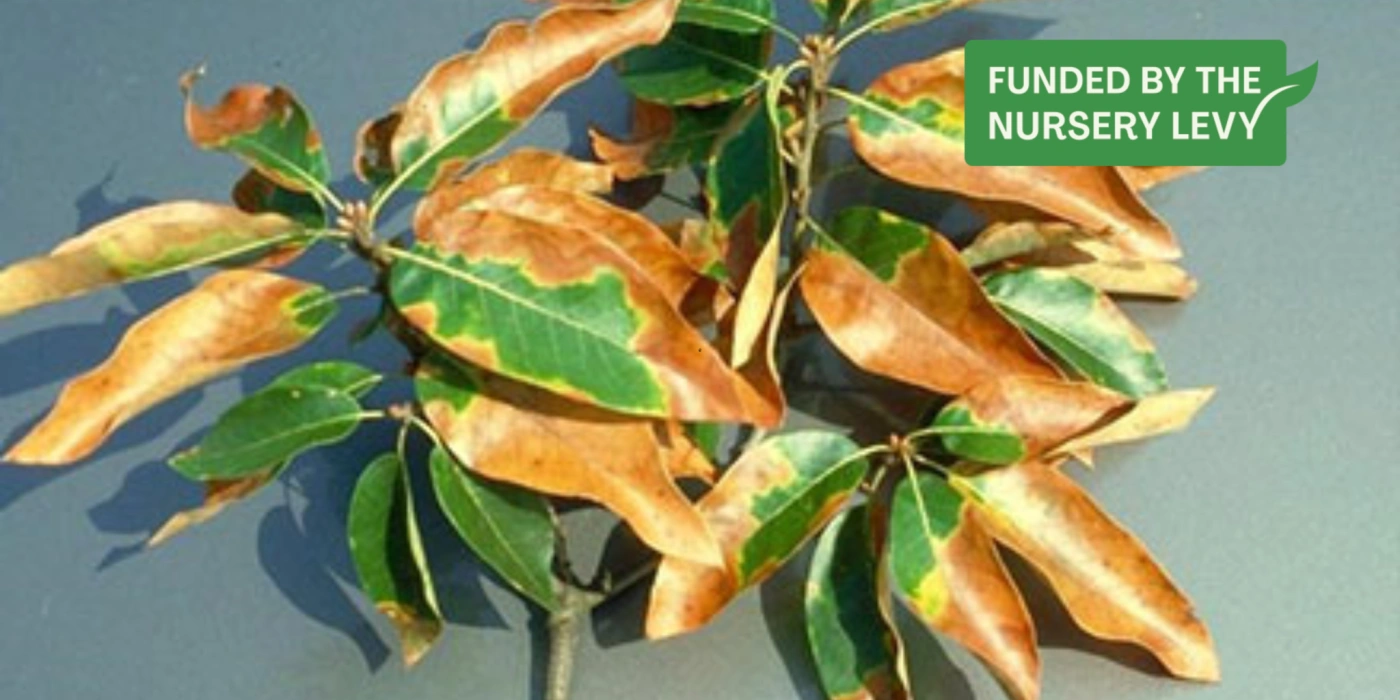R&D update: strengthening emergency measures against Xylella fastidiosa
16 February 2024

16 February 2024
Taking proactive steps, the Commonwealth Department of Agriculture, Fisheries and Forestry (DAFF) has updated protocols to tackle the threat posed by Xylella fastidiosa, a significant bacterial pathogen, in imported nursery stock.
As of December 2023, the department is actively enforcing regulatory measures for plants within the Simaroubaceae family to effectively mitigate the risk of Xylella.
These measures are part of Australia's emergency precautions against Xylella fastidiosa and its sub-species, including Xylella taiwanensis, aimed at safeguarding the country from their entry, establishment and spread.
The department will inform trading partners of these changes via a Sanitary and Phytosanitary (SPS) notification.
What is it?
Xylella fastidiosa, a destructive plant pathogen transmitted by sap-sucking insects, poses a severe threat to Australia's agricultural and horticultural industries.
Emergency measures, initially implemented in 2015, have been expanded to enhance biosecurity requirements. The department is conducting a pest risk analysis for ongoing evaluation.
How does Xylella spread?
Globally, over 650 plant species host Xylella fastidiosa.
The bacterium infects and can block the water transport tissues (xylem) of the host plant, which can lead to plant death.
Though not present in Australia and New Zealand, an incursion could cost over $1.2 billion annually, posing significant risks to various agricultural commodities.
What's changed?
Australia's emergency measures for Xylella have been updated due to the expanding host range of the pathogen. The plant family Simaroubaceae is now subject to these measures following Portugal's 20 November 2023 update, revealing Xylella presence in nursery stock imports.
This marked the first case in Ailanthus altissima, a species prohibited for import in Australia. As a result, emergency protocols cover the entire Simaroubaceae family. Measures will be reviewed and evolve as new information becomes available on the spread of the bacteria and host range.
The change affects the following genera within BICON (Australian Biosecurity Import Conditions):
- Eurycoma
- Quassia.
What type of plant material is affected?
The revised regulations implemented in December 2023 impact all permitted Eurycoma and Quassia species brought in as nursery stock, including tissue cultures, rooted plants and cuttings.
How will import permits and new permit applications be affected?
The department will contact permit holders affected by these changes to modify existing permits accordingly.
Importantly, because the department will initiate these adjustments, permit holders won’t incur additional costs.
What are the top tips for growers to protect themselves?
- Enforce strict hygiene protocols
- Proactively monitor, detect, and promptly report
- Implement robust control systems and diversify plant species
- Actively comply with import regulations and foster collaboration
- Drive investments in research, training and preparedness
For more information, read the February 2024 nursery paper – Expanding emergency measures for Xylella fastidiosa.
To contact DAFF about Xylella:
- call 1800 900 090
- email imports@aff.gov.au with the subject line ‘Plant T2 – Xylella emergency measures’.

